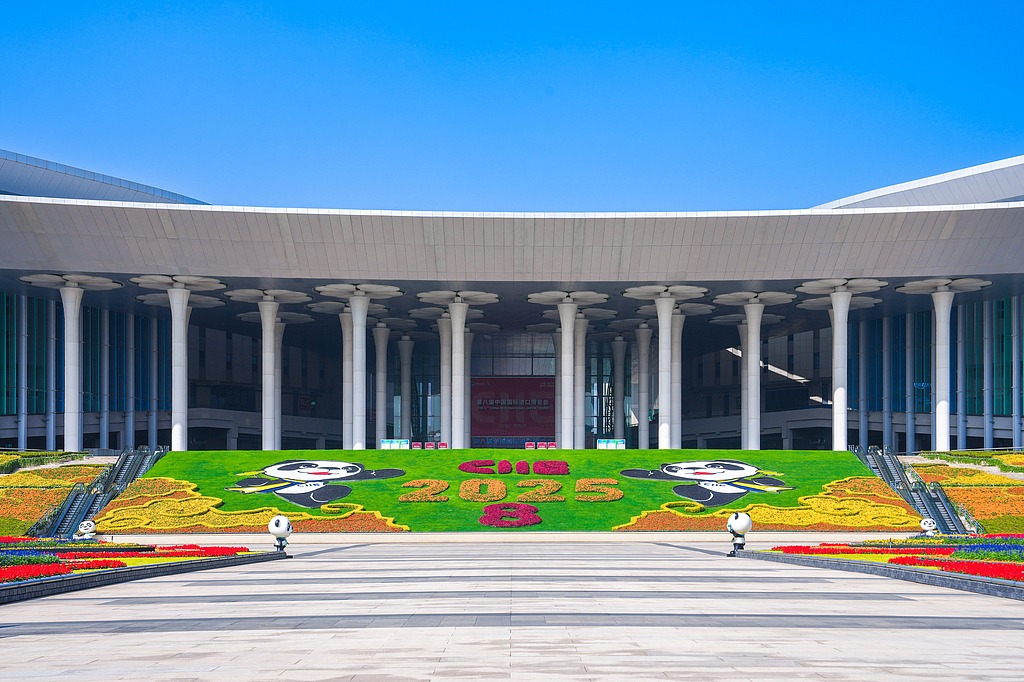Integration key to HK's competitiveness


The effect the COVID-19 pandemic has had on Hong Kong's economy, which had already been battered by the months of social unrests, is beginning to emerge, with some studies showing that the special administrative region could slip into a catalytic recession. There are also worries that the special administrative region may be marginalized in the country's overall development. So, given the challenges created by the pandemic and the rapid development of its neighboring areas, the SAR should play a more active role as an open window to the world, especially to the Chinese mainland.
Suffering the double impacts of the year-long social unrests and the pandemic, Hong Kong's unemployment rate has risen to 6.4 percent in the period of July to September, the highest in 16 years, and the SAR's GDP is likely to shrink appreciably in 2020, with almost all industries except the financial sector facing bleak prospects.
Hong Kong's economic revival depends, first, on when the epidemic will end. After all, Hong Kong is an international metropolis which cannot realize economic recovery if it remains in a state of lockdown for long. Second, Hong Kong's past "small government, big market" model can no longer fully meet its development requirements as a modern society. This system urgently needs to be improved through reform. And third, many Hong Kong residents are too complacent about the city's internal system and think it to be perfect, and are thus not enthusiastic about economic reform and opening up to the outside world. This mindset, if not changed, will hamper Hong Kong's further development.
If Hong Kong wants to get out of the current predicament, it must turn to reform and open up wider to not only Western countries, but also the rest of the world. It should also open wider to more mainland cities beyond the Pearl River Delta region.
But some circles in Hong Kong remain opposed to stronger links with the mainland, despite such an attitude causing great harm to the SAR. For example, during the outbreak, the mainland's medical teams and assistance could have helped Hong Kong to contain the virus earlier, but the Hong Kong medical community viewed the mainland medical experts as unqualified upstarts. And inexpensive testing tools from the mainland were at first strongly opposed, even denigrated by different interest groups in Hong Kong.
Hong Kong needs to open up more of its professional industries including healthcare and education to the mainland. If a number of qualified, well-funded and Cantonese-speaking mainland healthcare workers are introduced to Hong Kong, they can not only help the city prevent infections, but also provide Hong Kong residents with comprehensive as well as customized medical services, and assist the city's medical staff and institutions to better serve local residents.
Besides, the SAR's further opening up its education sector to the mainland will be of profound significance. As primary and secondary school students are all minors who can be easily influenced by teachers, they, under the guidance of some teachers, can be easily indoctrinated with anti-government political ideas and grow up in Hong Kong with unpatriotic ideas.
In the future, the SAR government should consider further liberalizing the education sector and introducing a diverse range of educational institutions. In particular, it should encourage educational institutions with patriotic and mainland backgrounds to run schools in Hong Kong.
As for Shenzhen and Hong Kong, over the past 40 years they have mutually benefited and advanced simultaneously. Especially, in its first 30 years, Shenzhen rose rapidly thanks to the transfer of talent, capital, technology and industries from Hong Kong. The shifting of Hong Kong's manufacturing enterprises to Shenzhen also released more space and resources for Hong Kong to develop its financial sector, which contributed to its rise as a global financial center.
By further opening up to the mainland, Hong Kong could deepen its complementarity with Shenzhen. While Hong Kong enjoys good educational resources, Shenzhen boasts a good entrepreneurial environment, and Hong Kong university graduates and other talents can start businesses in Shenzhen. Hong Kong has a sound financial service system, and companies that have grown in Shenzhen could list on the Hong Kong Stock Exchange for financing. Such a virtuous circle can help forge Shenzhen and Hong Kong into an "offshore technology center".
The development of the Guangdong-Hong Kong-Macao Greater Bay Area, too, can serve as a platform for Hong Kong to further open up to the mainland. The construction of the Greater Bay Area shows that "China will continue to open up in an all-round way" to the outside world. In this case, as an international financial center, Hong Kong should play a bigger role as an open window.
According to statistics, the Greater Bay Area has a population of more than 70 million, while Hong Kong's population is only 7 million. So if Hong Kong products are sold in the Greater Bay Area, the turnover will increase by 10 times. In addition, people living in the Greater Bay Area are generally high-income earners, and their huge demands for investment bond and insurance purchases can boost Hong Kong's financial industry and consolidate its status as an international financial center.
Given the expected closer collaboration and cooperation between Hong Kong's financial sector and the mainland's offshore science and technology sector, Hong Kong will enhance its competitive advantage and help the mainland promote the new "dual circulation" development pattern. This will ensure that Hong Kong's status as a global financial center and leading international city is consolidated, and further promote its social, technological and economic development.
Liang Haiming is chairman of Guangzhou-based Silk Road iValley Research Institute; and Hung Witman is an academic member of the institute, and a deputy to the 13th National People's Congress.
The views don't necessarily reflect those of China Daily.
If you have a specific expertise and would like to contribute to China Daily, please contact us at opinion@chinadaily.com.cn , and comment@chinadaily.com.cn


































